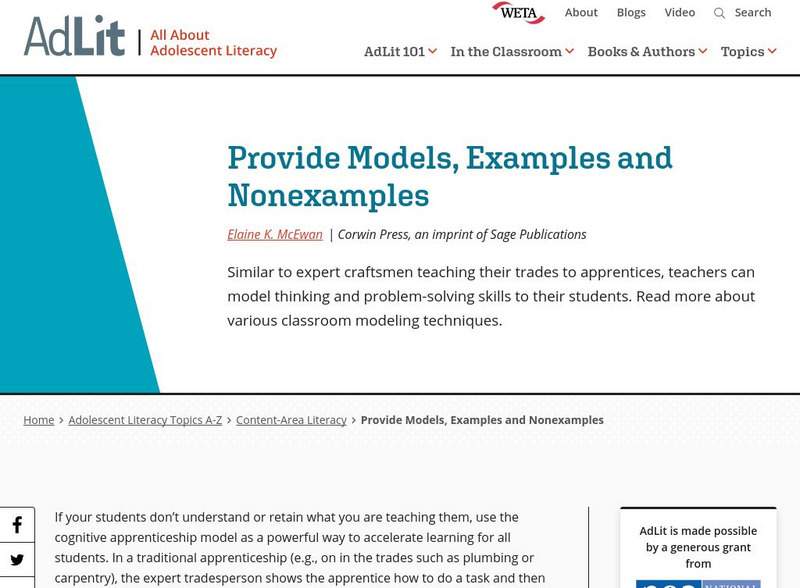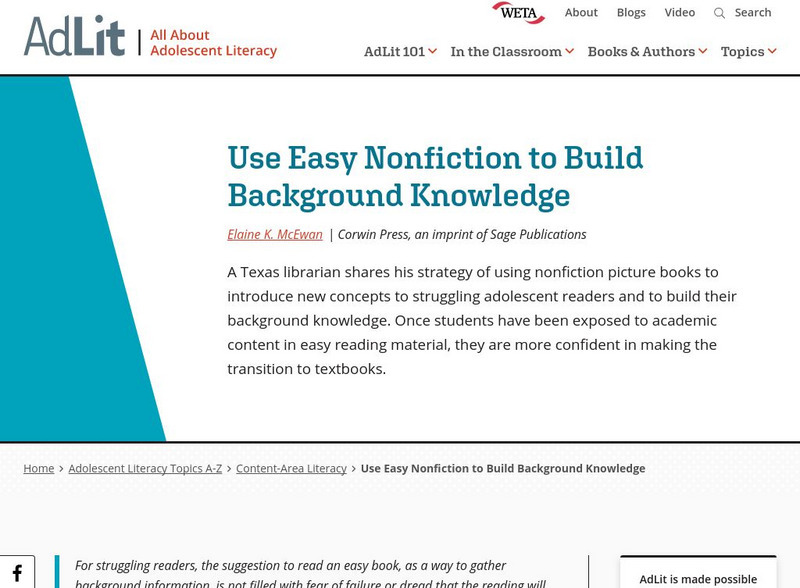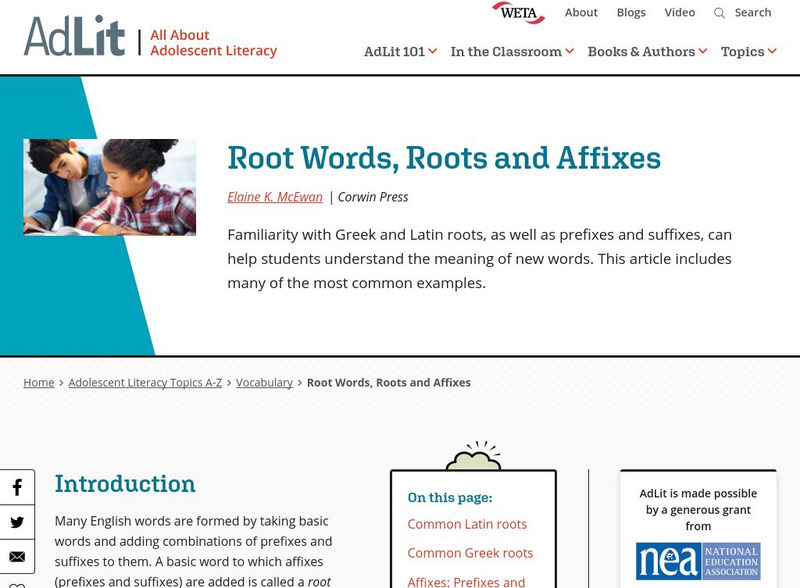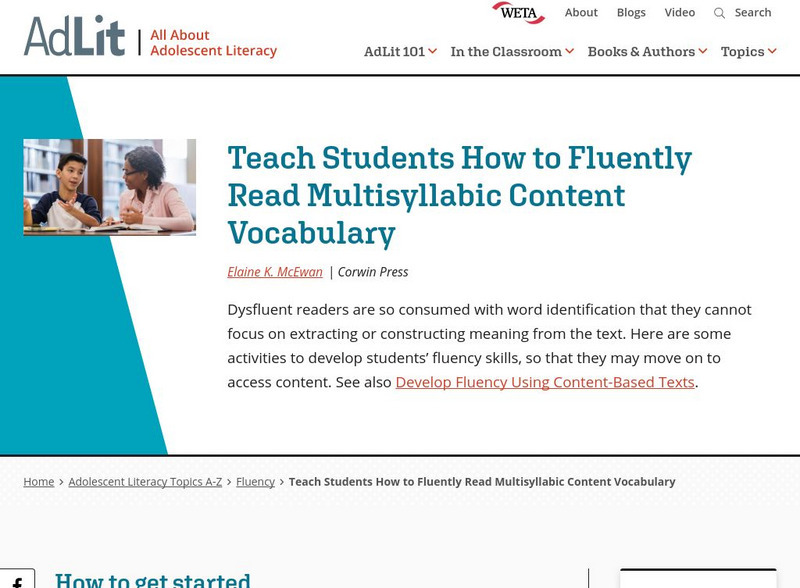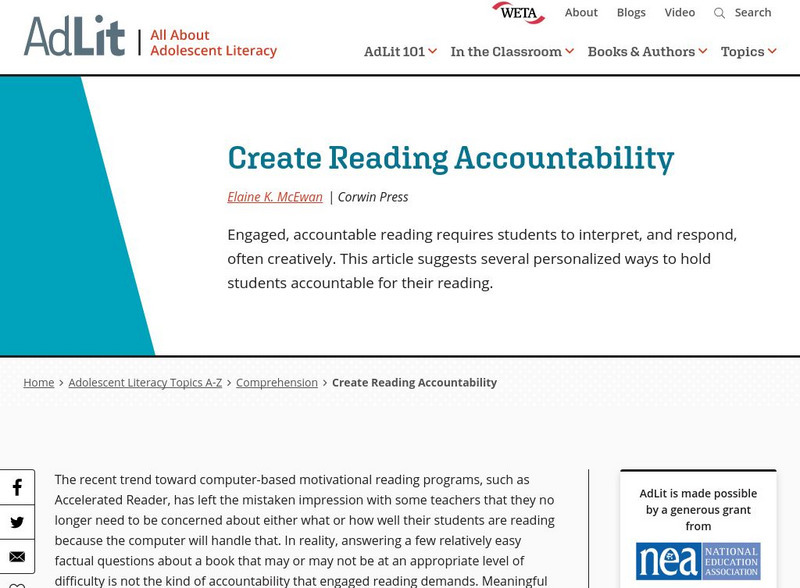AdLit
Ad lit.org: Scaffold Mindful Silent Reading
Help students internalize and routinize their reading comprehension monitoring with this sample lesson.
AdLit
Ad lit.org: The Teaching Moves of a Strategic Teacher
Research demonstrates the effectiveness of the 12 strategic teaching moves described in this article. On any given day in any given classroom, the strategic teacher employs all of these moves - whether with the whole class, a small...
AdLit
Ad lit.org: Provide Models, Examples and Nonexamples
Similar to expert craftsmen teaching their trades to apprentices, teachers can model thinking and problem-solving skills to their students. Read more about various classroom modeling techniques.
AdLit
Ad lit.org: Use Easy Nonfiction to Build Background Knowledge
A Texas librarian shares his strategy of using nonfiction picture books to introduce new concepts to struggling adolescent readers and to build their background knowledge. Once students have been exposed to academic content in easy...
AdLit
Ad lit.org: Teach the Seven Strategies of Highly Effective Readers
To improve students' reading comprehension, teachers should introduce the seven cognitive strategies of effective readers: activating, inferring, monitoring-clarifying, questioning, searching-selecting, summarizing, and...
AdLit
Ad lit.org: Use the Cooperative Learning Model
Cooperative learning fosters group accountability and provides struggling readers with the opportunity to work with stronger academic role models. Learn how to introduce this strategy in the classroom.
AdLit
Ad lit.org: Develop Fluency Using Content Based Texts
Fluency is the missing piece of the reading puzzle for many older students. They can decode, but they cannot do it automatically and accurately enough to comprehend text. Here are some fluency-building activities to complement content...
AdLit
Ad lit.org: Root Words, Roots and Affixes
Familiarity with Greek and Latin roots, as well as prefixes and suffixes, can help students understand the meaning of new words. This article includes many of the most common examples.
AdLit
Ad lit.org: Teach Students How to Fluently Read Multisyllabic Content Vocabulary
Dysfluent readers are so consumed with word identification that they cannot focus on extracting or constructing meaning from the text. Here are some activities to develop students' fluency skills, so that they may move on to access content.
AdLit
Ad lit.org: Create Reading Accountability
Engaged, accountable reading requires students to interpret, and respond, often creatively. This article suggests several personalized ways to hold students accountable for their reading.
AdLit
Ad lit.org: Expect Students to Activate, Connect and Summarize Daily
The activate, connect, and summarize daily routine can help struggling adolescent readers acquire new content. It consists of asking students to activate (what did we learn yesterday?), connect (draw a connection between your life and...
AdLit
Ad lit.org: Use and Teach Content Vocabulary Daily
Copying definitions from the dictionary and memorizing words for tests is not sufficient work for students to master and retain new vocabulary. This article helps teachers choose which words are most important to teach and suggests...




